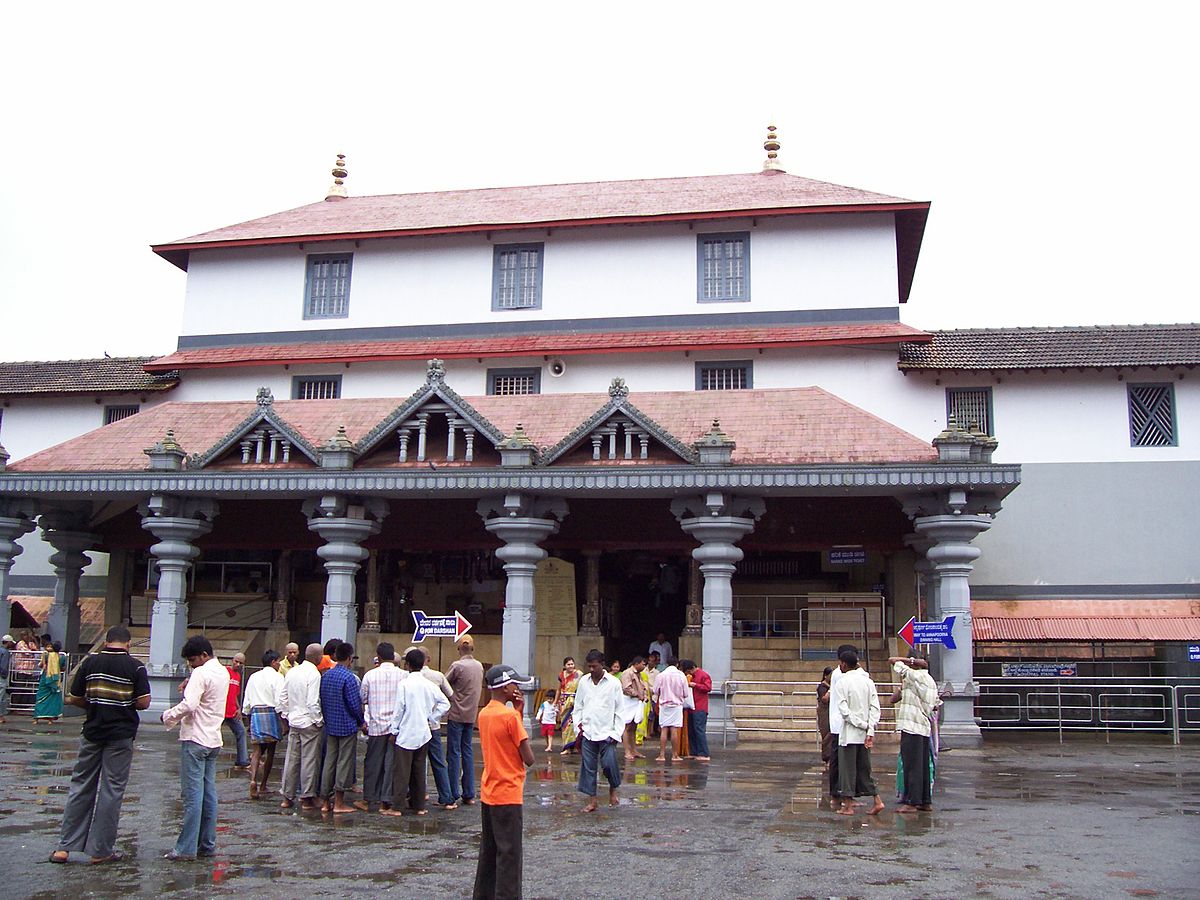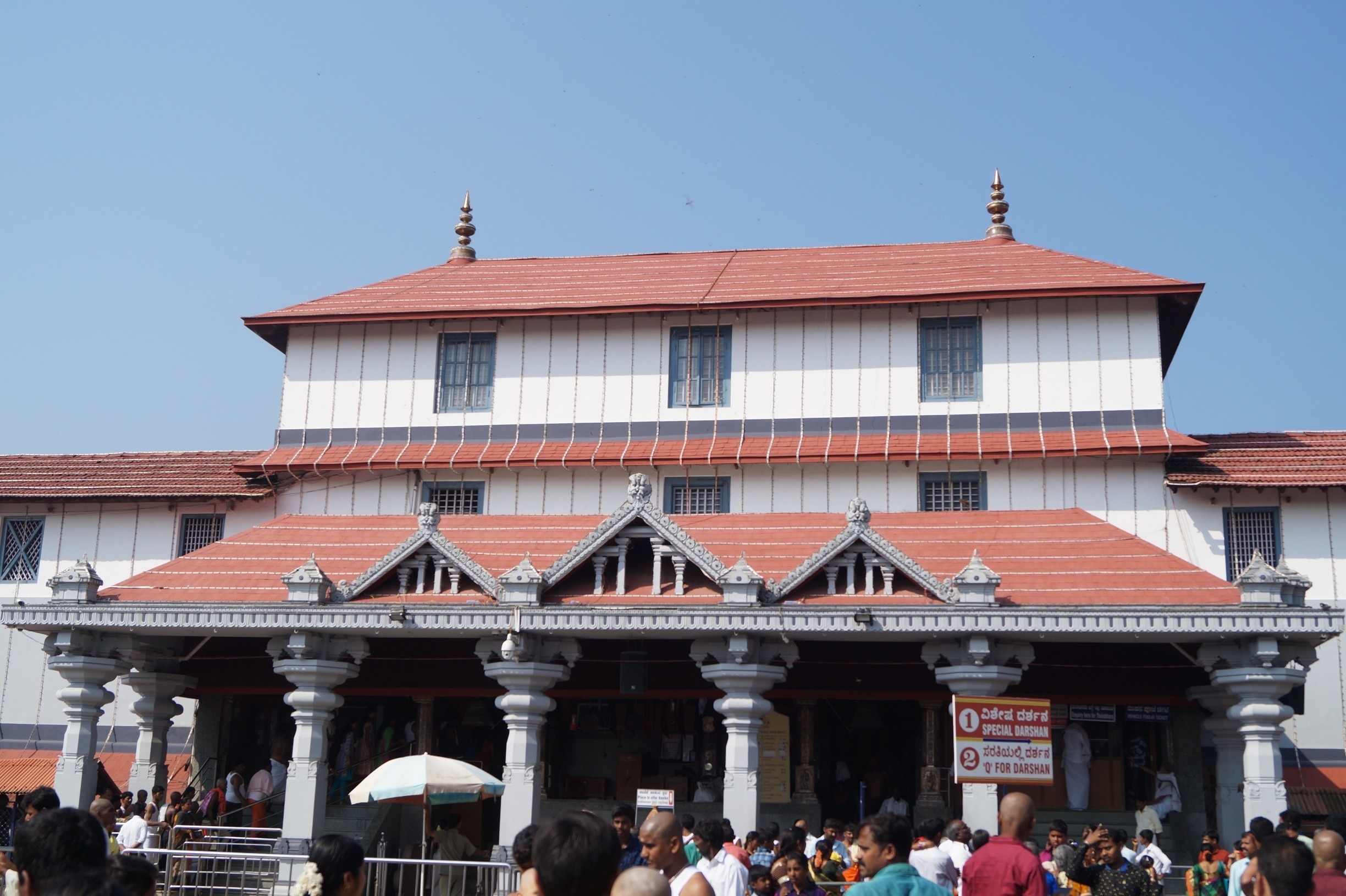Karnataka Deputy Chief Minister D K Shivakumar has lashed out at what he termed a “malicious and politically motivated” attempt to defame the temple town of Dharmasthala, calling the controversy over the recent incident an “empty trunk” case. Addressing reporters, Shivakumar asserted that vested interests were working to create a false narrative, aiming to damage the centuries-old reputation of one of Karnataka’s most revered religious and cultural centers. He alleged that the timing of the allegations indicated a deeper agenda meant to stir unrest and discredit the community’s faith in the temple administration.
Shivakumar emphasized that Dharmasthala’s history of service, charity, and cultural preservation cannot be overshadowed by baseless accusations. “It is not just about an incident — it is about protecting the dignity of a heritage site and the millions who revere it,” he said, urging citizens not to be swayed by sensational reports. He reiterated that investigations should proceed in a fair and transparent manner, but cautioned against rushing to conclusions that could harm the town’s spiritual standing. The Deputy CM also hinted that such controversies often emerge ahead of significant political or social events, raising suspicions about the real motives.
In his statement, Shivakumar referred to the phrase “empty trunk” as a metaphor for a hollow case without substance, stressing that the allegations lack credible evidence. He urged the media to act responsibly, highlighting the damage that unverified news can cause to religious sentiments and community trust. “Dharmasthala is a symbol of unity and devotion. We must ensure it remains untainted by fabricated claims,” he added, reinforcing his call for restraint and truth in public discourse.
Shivakumar’s statements have sparked strong reactions from both supporters and critics, with many rallying behind his call to protect Dharmasthala’s reputation. Several local leaders from various political parties echoed his concerns, stating that religious sites should not be dragged into politically charged controversies. Social activists from the region stressed the importance of focusing on the positive contributions of the temple town rather than allowing unfounded allegations to cloud public perception. Many community members also expressed frustration over the way the matter was amplified in the media without sufficient evidence, claiming it risked damaging decades of trust built with devotees.
The Deputy CM also pointed out that Dharmasthala is not merely a religious location but a hub of charitable initiatives that benefit lakhs of people annually. From free educational institutions to mass meal programs, the temple administration has played a vital role in uplifting marginalized communities. Shivakumar argued that targeting such a place with baseless accusations was akin to attacking a source of hope and service for countless citizens. He insisted that the truth would eventually emerge, and when it did, those behind the conspiracy would have to answer to the people.
Meanwhile, legal experts have weighed in, noting that while public officials are entitled to defend heritage sites, such strong statements must be backed by transparency in investigations. They warned that if political leaders prematurely dismiss allegations without thorough evidence, it could undermine the credibility of the process. However, in this case, many believe Shivakumar’s confidence stems from his understanding of the facts and his conviction that the charges are fabricated. They stress that public trust can only be preserved through complete and impartial fact-finding.
Religious leaders from across Karnataka have also spoken up, condemning what they see as attempts to malign Dharmasthala’s spiritual image. Some expressed that such controversies not only hurt local devotees but also impact pilgrims from other states who visit the town with deep reverence. They urged the public to remain patient and to await the official findings instead of forming opinions based on unverified narratives. In their view, Dharmasthala’s sanctity is a matter of pride for the entire nation, and safeguarding it must remain a shared priority.


Preserving Dharmasthala’s Cultural Legacy- Empty Trunk
The Deputy CM’s remarks have reignited the debate on how temple towns are portrayed in the media and the extent to which political rivalries influence such narratives. Dharmasthala, known for its historic temple dedicated to Lord Manjunatha and its free community services like mass feeding and education initiatives, has long been regarded as a model of cultural and religious harmony. Shivakumar’s defense is not just about dismissing an allegation but about safeguarding the legacy of a place intertwined with Karnataka’s identity.
He further underlined that any investigative process should maintain the sanctity of the town and its people. According to him, allegations targeting Dharmasthala risk undermining the confidence of pilgrims and visitors who travel from across the country. “It is our collective responsibility to shield our spiritual heritage from becoming collateral damage in political or personal battles,” he said. Officials have confirmed that a thorough inquiry is underway, but added that preliminary findings have yet to point toward any wrongdoing that would justify the severity of the claims being made.
Shivakumar has also framed the Dharmasthala case as part of a broader pattern of attacks on Karnataka’s cultural and spiritual heritage. In his speeches, he has drawn parallels with past controversies where religious institutions were targeted through misinformation campaigns. By doing so, he seeks to rally not only local devotees but also the wider Karnataka public who view such heritage as a matter of collective pride. He has emphasized that the state’s temples, mosques, and churches are all part of its rich tapestry and deserve equal protection from politically motivated defamation, regardless of faith or political alignment.
Community elders in Dharmasthala have echoed Shivakumar’s sentiments, recalling how the temple town has historically been a symbol of communal harmony. Over generations, it has welcomed devotees from across caste and creed, offering food, shelter, and spiritual guidance without discrimination. Elders believe that the current controversy undermines decades of goodwill built between diverse communities. They also fear that if such narratives persist, they could sow unnecessary divisions where none existed before. Many have urged for a prompt and transparent inquiry to restore the unity that Dharmasthala has long embodied.
The emotional aspect of the case has resonated particularly strongly among rural devotees, many of whom see Dharmasthala as a beacon of hope. For farmers, small traders, and laborers, the temple represents more than just a religious site—it is a place where they seek blessings during difficult times and celebrate successes during good harvests. Shivakumar’s framing of the issue as an emotional attack on faith and tradition has struck a chord with these groups. This groundswell of public sympathy has, in turn, put pressure on authorities to act swiftly and conclusively in resolving the matter.
As political analysts observe, the Dharmasthala controversy could influence upcoming local elections in the region. Protecting cultural heritage is a sentiment that cuts across party lines, making it a potent electoral talking point. Shivakumar’s proactive defense of the temple may bolster his image as a guardian of Karnataka’s traditions, potentially drawing support from undecided voters. However, critics caution that if the investigation takes a turn that contradicts his assertions, it could create a political backlash. The stakes, therefore, remain high for both the Deputy CM and the future narrative surrounding Dharmasthala.

Call for Caution and Responsibility
With emotions running high, Shivakumar’s statements appear aimed at calming public sentiment while urging caution against divisive narratives. Political observers note that the Deputy CM’s forceful defense of Dharmasthala could also resonate with voters who view the temple town as a sacred institution beyond partisan politics. The outcome of the ongoing investigation will likely determine whether the controversy fades quietly or escalates into a prolonged public debate over truth, trust, and the preservation of Karnataka’s spiritual heritage.
In the political sphere, the incident has stirred debates over the misuse of allegations as tools for electoral advantage. Some opposition members have accused the government of overreacting to criticism, while others believe the controversy is a deliberate attempt to divert attention from pressing governance issues. Shivakumar, however, has maintained that his stand is not politically motivated but is instead rooted in his duty to defend Karnataka’s cultural treasures. His insistence on protecting Dharmasthala has resonated with many voters who value tradition as an integral part of the state’s identity.
The media’s role in shaping the controversy has also come under scrutiny. While some outlets have been accused of sensationalizing the incident, others have been praised for exercising restraint and avoiding speculation. Shivakumar’s appeal for responsible journalism is seen as a reminder of the power the press holds in influencing public opinion. Analysts note that when dealing with sensitive cultural matters, the media’s approach can either defuse tensions or inflame them further, making ethical reporting crucial to maintaining social harmony.
On the ground, residents of Dharmasthala have continued their daily routines, with temple activities proceeding as usual. Devotees arriving for darshan have voiced mixed reactions, with some unaware of the controversy and others expressing disappointment that the temple’s name is being discussed in a negative light. The temple administration has refrained from making extensive public comments, instead choosing to cooperate fully with the investigation. This measured approach, locals say, reflects their confidence that the truth will eventually clear the town’s name.
Economically, the town’s tourism industry could face short-term impacts if the controversy lingers. Dharmasthala relies heavily on visitors, not just for religious purposes but for cultural festivals and heritage tourism. Business owners in the area have called for a swift resolution, fearing that prolonged negative attention could deter pilgrims and tourists alike. Shivakumar’s intervention, they believe, might help restore confidence among visitors and prevent economic setbacks for the region’s small businesses and service providers.

In the legislative assembly, Shivakumar’s remarks have prompted calls for a broader discussion on protecting heritage sites from reputational harm. Some MLAs have suggested forming a special committee to review how such incidents are handled and to establish guidelines for public communication during ongoing investigations. The aim would be to balance transparency with cultural sensitivity, ensuring that sacred locations are not unduly tarnished by premature or unfounded claims. This proposal has garnered initial support from lawmakers across party lines.
As the investigation continues, the outcome is expected to have long-term implications for how Karnataka addresses similar controversies in the future. If the allegations are proven false, it could serve as a cautionary tale about the dangers of politicizing heritage sites. On the other hand, if credible evidence emerges, it would challenge the current narrative and require accountability from those who defended the temple without reservation. For now, Shivakumar remains steadfast, repeating his belief that Dharmasthala’s legacy will remain untarnished despite the storm of allegations swirling around it.
Follow: Karnataka Government
Also read: Home | Channel 6 Network – Latest News, Breaking Updates: Politics, Business, Tech & More

